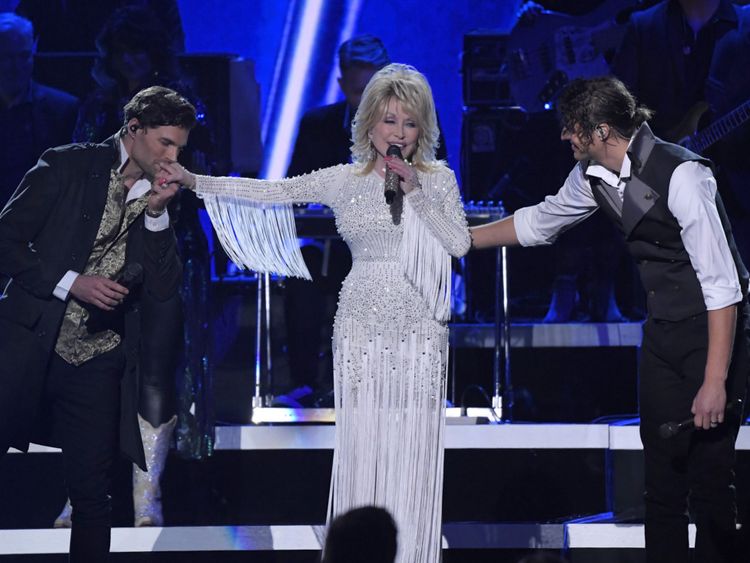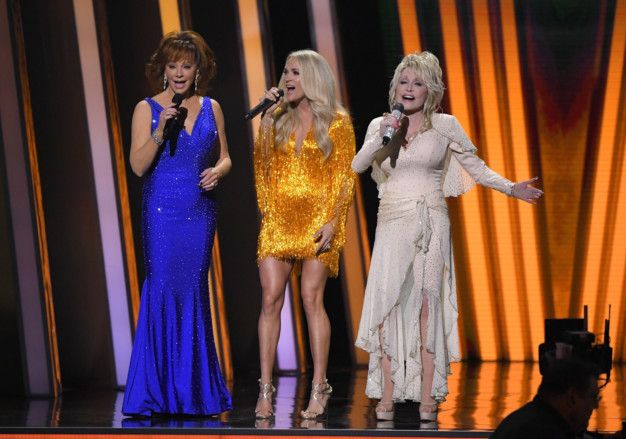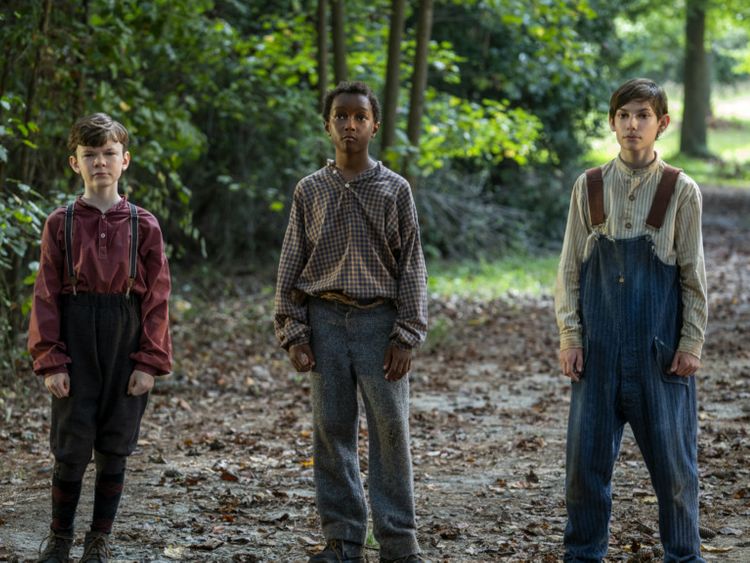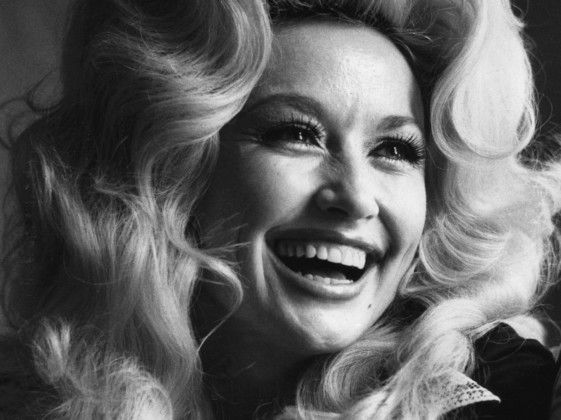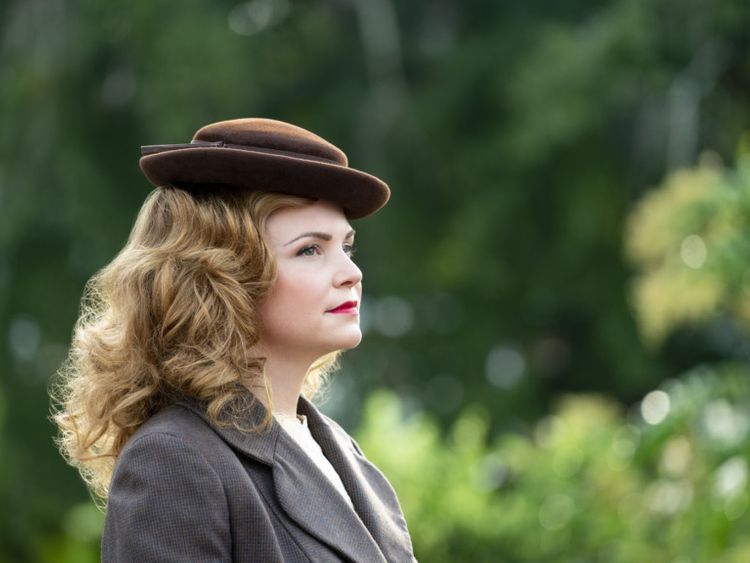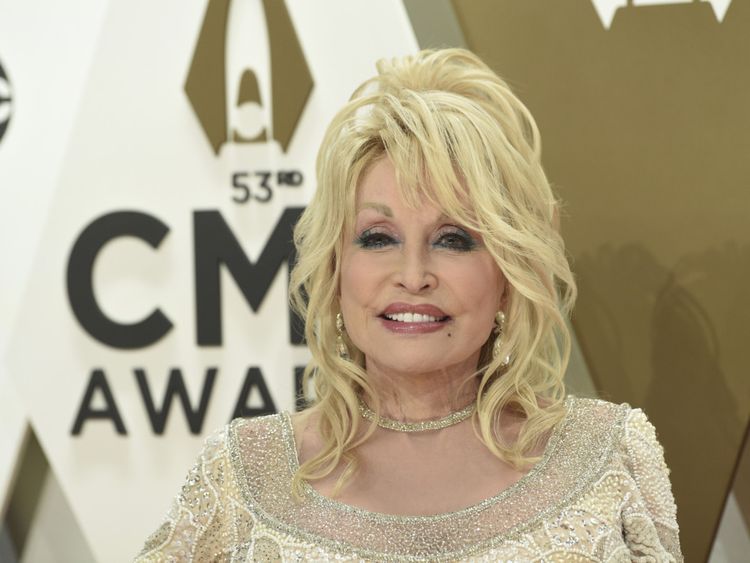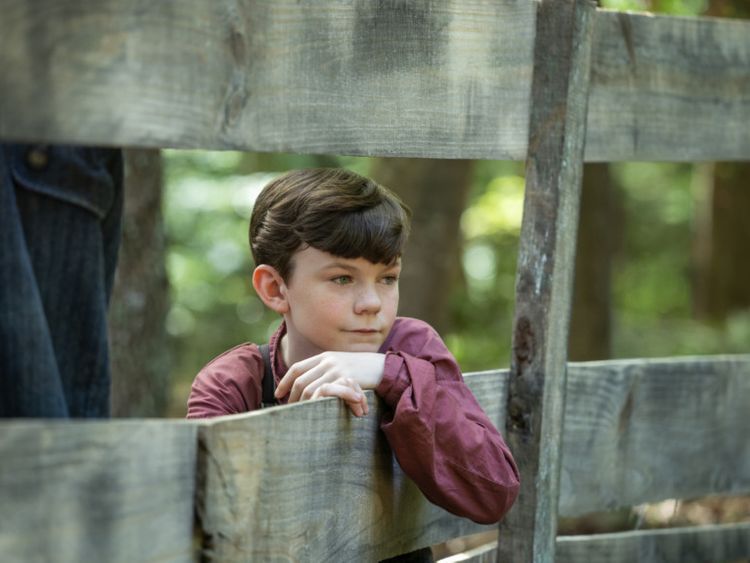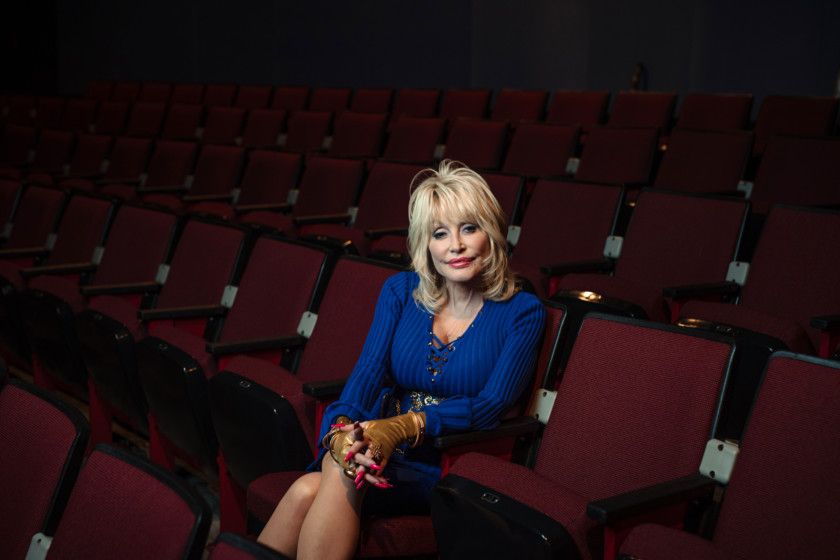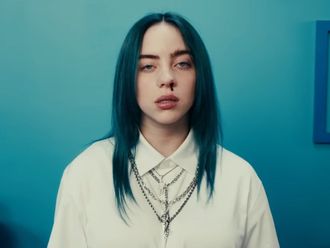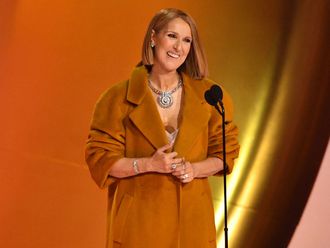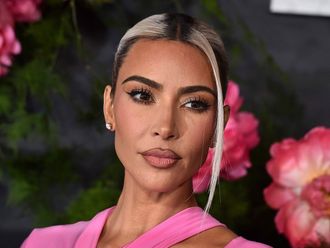Maybe you’ve heard the rumour about the tattoos.
Some people believe that Dolly Parton’s arms — which haven’t been seen bare in public for decades — are secretly covered in ink. Roseanne Barr claims to have once spied the elusive tats (“No black or blue lines,” she told Craig Ferguson in 2011, “all like, pastel gorgeous bows all over everything”), while Savannah Guthrie grilled Parton about the whispers in a 2014 ‘Today’ show appearance. “People said the other day, the reason you wear sleeves is because you have snakes tattooed all over you,” she told Guthrie, “and I was like, ‘No I don’t!’” True believers took this only as evidence that she doesn’t have tattoos.
Parton’s popularity has endured, in large part, because even after five decades of stardom she remains an enigma in plain sight. Call it the Parton Paradox: Hers has been one of the most scrutinised female bodies in the history of modern celebrity, and yet no one can tell you for certain what her forearms look like.
“Very often someone will wow you, but as you get to know them, the mystery wears off,” Jane Fonda, Parton’s co-star in the feminist film ‘9 to 5,’ told Rolling Stone in 1980. “One of the things that just flabbergasts me about Dolly is the amount of mystery she has.”
And at the moment, the magical mysteries of Dolly Parton seem to be captivating a whole new generation. The 73-year-old is riding high on a trifecta of millennial milestones: She’s the subject of a popular serialised podcast (WNYC’s ‘Dolly Parton’s America,’ hosted by Radiolab’s Jad Abumrad), the inspiration for a Netflix anthology series (‘Dolly Parton’s Heartstrings’), and the featured vocalist on an EDM song (the Swedish duo Galantis’ ‘Faith,’ on which Parton appears alongside a Dutch rapper named Mr Probz). And, as her nearly 5 million Twitter followers will tell you, she knows her way around a ‘Jolene’ meme.
In some sense, though, 2019 is an odd time for a Dolly renaissance. It’s easy to see why someone like Fonda — a kind of octogenarian Greta Thunberg — is enjoying an uptick in intergenerational support from a politically aware cohort too young to remember her days of anti-war activism. Parton, on the other hand, has remained reluctant to make the slightest hint of a political statement, even in these urgent times.
The first episode of ‘Dolly Parton’s America’ centres partly on the ‘9 to 5’ songwriter’s reluctance to call herself a feminist. Earlier this year, Parton’s own sister, Stella, said she was “ashamed” of Dolly for not speaking out more about the #MeToo movement. In response, Parton told The Guardian: “I don’t feel I have to march, hold up a sign or label myself. I think the way I have conducted my life and my business and myself speaks for itself.”
Yet at the 2017 Emmys, Parton looked visibly, uncharacteristically flustered when she appeared onstage to present a best supporting actor award with her co-stars Fonda and Lily Tomlin — both of whom took a seemingly unscripted verbal swipe at President Donald Trump. Steering the conversation back to more familiar territory, Parton did what she’s also done when some interviews have gotten too political or contentious: She pulled from her trusted arsenal of boob jokes.
“Well, I know about support,” she quipped, gesturing toward her chest. “If it weren’t for support, Shock and Awe here would be more like Flopsy and Droopy.”
One reason Parton’s approval rating is so high, though, is that all the attributes that used to set her up for criticism — the outrageous, hyper-femme style; the unapologetic business savvy needed to pull off her late-70s pop crossover; even the so-what acknowledgement of her own cosmetic surgery — are no longer taboo.
A generation that’s grown up with Snapchat-filtered selfies and pop feminism seems to have an innate understanding that artifice doesn’t negate authenticity, or that a penchant for towering wigs and acrylic nails doesn’t prevent someone from being a songwriting genius. (Maybe they even help: Parton claims to have first tapped out the beat of ‘9 to 5’ while idly clicking her fingernails.)
Perhaps that’s why her rhinestone DNA is visible in young artists as varied as Kacey Musgraves and Cardi B — to say nothing of Parton’s own goddaughter Miley Cyrus, who inspired a whole new generation of Parton fans who first came to know her as wacky Aunt Dolly from ‘Hannah Montana.’ Parton sang a duet with Kesha on her 2017 album Rainbow’ — a 1980 Parton hit that Kesha’s mother happened to co-write. At this year’s Grammys, when Parton was honoured with the MusiCares person of the year award for her philanthropy, she performed a rousing medley of her hits alongside a who’s who billing of her millennial heirs, like Katy Perry, Maren Morris and Musgraves.
Like Cher, another 73-year-old multihyphenate icon, Parton has over the past few years ascended to a rarefied level of intergenerational celebrity: a saucy grandmother of social media. When the Gen-Z sheriff and ‘Old Town Road’ mastermind Lil Nas X wondered aloud, on Twitter, “y’all think I can get dolly parton and megan thee stallion on an old town road remix? [sic],” Parton (or at least someone on her team) was quick to respond with a very appropriate unicorn emoji. “I was so happy for him,” Parton said recently of Lil Nas X. “I don’t care how we present country music or keep it alive,” she added. “I’m all about acceptance.”
A refreshing aspect of this current wave of Dolly appreciation is that her songwriting talent is finally front and centre. On the first episode of ‘Dolly Parton’s America,’ Parton notes a fact that has recently gone viral — that she may have written ‘Jolene’ and ‘I Will Always Love You’ on the same night.
True Dolly fanatics will already know that, of course, but Abumrad narrates from his position as a relative outsider to what he calls the Dollyverse, presenting ‘Dolly Parton’s America’ with the aesthetic language of the modern podcast: snippets of interviews, tonally appropriate background music, and the inviting, conversational voice of a man guiding you through his thought process as he travels down various rabbit holes of his own curiosity. Parton granted Abumrad quite a few sit-down interviews, and although seasoned Parton fans will find little of what she tells him to be new information, ‘Dolly Parton’s America’ is a genial, compulsively listenable crash course in Parton’s lasting appeal.
‘Dolly Parton’s Heartstrings’ is a different, if equally modern, beast: a celebrity-studded anthology series designed to be binge-watched on a streaming service. Again, her songwriting prowess is the driving force: Each story is a dramatic teleplay inspired by one of Parton’s songs. One episode, based on Parton’s 2002 ballad ‘These Old Bones,’ is a poignant period piece starring Kathleen Turner as a backwoods fortune teller; another casts the ‘Dancing With the Stars’ champion Julianne Hough as a contemporary Jolene. (Parton guest-stars in that one, as a sassy honky-tonk bar owner named Babe.)
The meticulously reported podcast and the soapy Netflix series will satisfy their respective corners of the Dollyverse, but they’re unlikely to be consumed or enjoyed by the same demographic. Like so much Parton ephemera, they provide only partial glimpses of her vast allure — the monochromatic pieces that make up a coat of many colours.
Dolly Parton in 2019 contains a unique mixture of the old-fashioned and newfangled celebrity. Like a vintage Hollywood studio head, she understands stardom as a kind of blank dream screen onto which people project their own stories and fantasies. (The illustration of her that serves as the logo for ‘Dolly Parton’s America’ imagines her, naturally, with a sleeve of tattoos.) But she has also — long before social media — known the importance of the avatar, the fun that can be had in creating an exaggerated public caricature of oneself. And what are her pithy Dollyisms — “It takes a lot of money to look this cheap” — if not proto-tweets?
Still, the secret to her endurance seems to lie in the parts of herself she’s always kept safely out of sight. “I’ll just tell it as I know it, or as I feel it ... or as I want you to hear,” Parton told Abumrad with a wink. As a strategy for creating mystique, it’s still drawing people to her, five decades into her career. It’s not that she believes, it’s that she seems to believe deeply in certain things she’d rather keep close to the vest. Or maybe, to the forearm.
__
Don’t miss it!
‘Dolly Parton’s Heartstrings’ is now streaming on Netflix.



